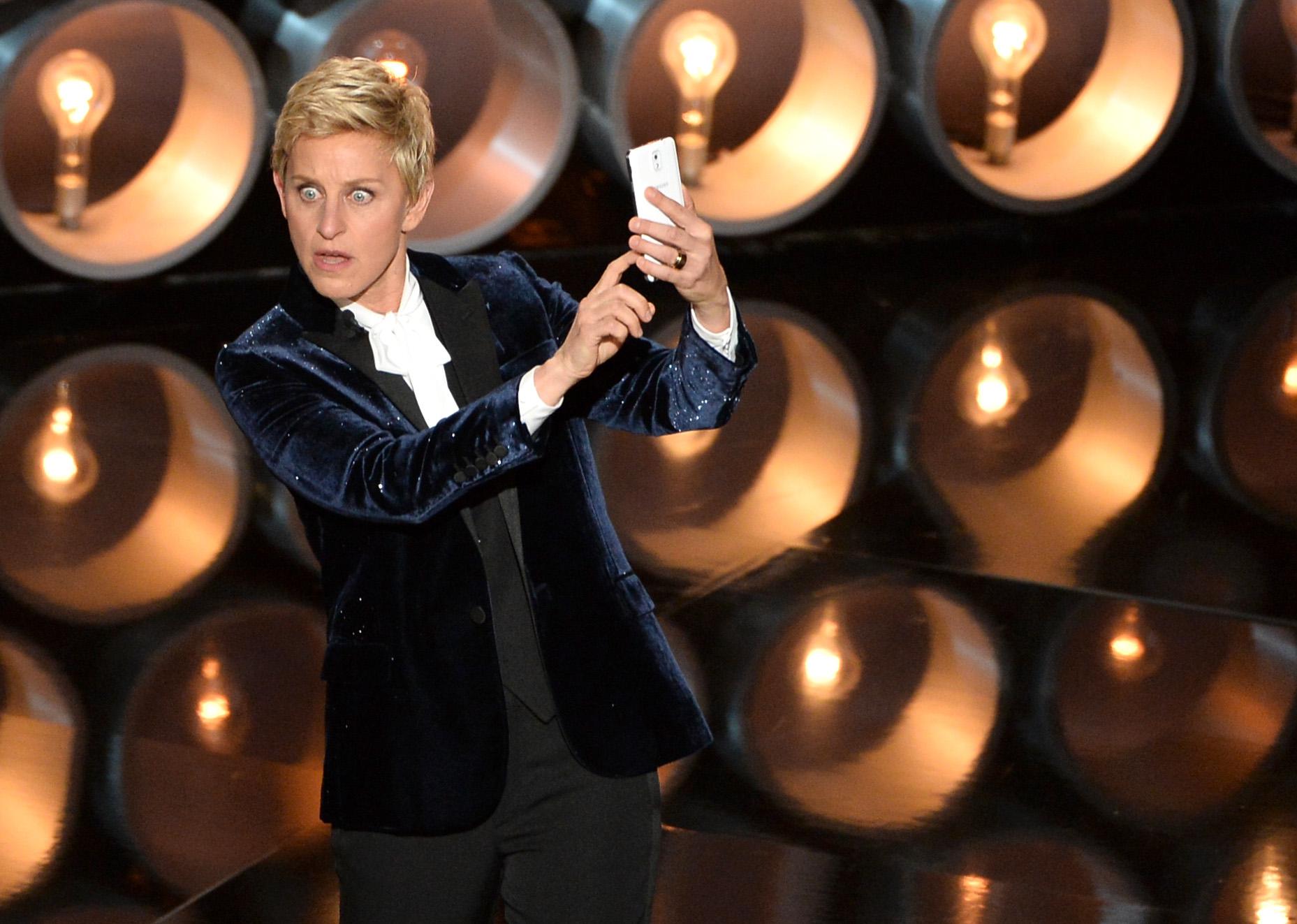Is it possible for an Oscar telecast to seem good as it is happening? Somewhere in the middle of the 30-minutes-longer-than-it-should-have-been, Ellen DeGeneres–hosted Academy Awards, in the vast oases between Best Supporting Actor and Best Supporting Actress, between Best Supporting Actress and Best Picture, I started to wonder if hosts of years past, even ones I know were terrible, might not have been more entertaining. If Billy Crystal, as dull as he was two years ago, or James Franco and Anne Hathaway and their Quaaludes-meets-cocaine horror vibe, or Seth MacFarlane and his misogyny, weren’t preferable to another montage about heroes, featuring almost no women. But I think it is just forgetfulness: Every year, we forget how godawful-long the Oscars are. By the time the show rolls around again, the montages, the terrible patter, and the sheer length have faded from our memories, and we are just left with the memorable moments. When this Oscars gets reduced to the one in which Meryl Streep shimmied, Darlene Love sang, John Travolta made up a name, and 12 Years a Slave won it won’t—it can’t—seem as bad as it did while it was going down.
Ellen DeGeneres’ performance as host was a kind of low-key reaction to MacFarlane and even Hathaway-Franco and the Academy’s every other year interest in going in a riskier direction. Ellen is not an offensive persona; she is safe hands. And if her performance was surprisingly, maybe even overly sly, she made sure to camouflage it very well. She started slowly—opening with literally a joke about the weather—and then, from a certain perspective, proceeded to affably spend the night changing costumes and ordering famous people—who are just like us!—pizza, while never taking a clear shot at anyone other than Liza Minnelli.
But Ellen was also up to something slightly crafty. She basically took a page out of Stephen Colbert’s handbook, casting herself as an Oscar believer and insider, so she could tease what was going on around her without seeming like a tease. “I’m not saying movies are the most important thing in the world, I’m not saying that, because the most important thing in the world is youth,” was one of her early jokes. This is almost pure Colbert—adopting a batty consciousness—but put to a much more subtle effect. Colbert mimics right-wingers in order to mock them; Ellen mimicked celebrity thought with scorn and more affection.
After the opening monologue, Ellen spent too much time in the audience, often doing a whole lot of nothing: saying hi to famous people, copping their chairs, asking for money. These bits were dull and baggy, as was the show in general. (Speeches didn’t get cut off this year, which is sweet, but added up to about 30 minutes of the audiences’ life.) But the climax, when Ellen orchestrated a high-celebrity-wattage selfie, now the most tweeted tweet of all time, was another double-edged moment: a comment on how much we all love famous people and also a comment on how much famous people want to be loved. Ellen was celebrating fame, if you wanted to see that; she was also lightly poking fun, if you wanted to see that. Presumably more people saw the former, which is why the Academy hired her: She’s not an overt troublemaker.
Ellen’s best joke came at the end of her monologue: “Possibility number one, 12 Years a Slave could win. Possibility number two, you’re all racists,” she said, a reductive bit of logic that nonetheless felt like a pretty accurate read of feelings about the Best Picture race. (Ellen’s next joke, “Now please welcome our first white presenter,” made it land even harder.) 12 Years a Slave did win and if all that proves is that the largely white Academy members were willing to watch and able to appreciate a movie about slavery—a low hurdle many people feared was too high—that’s better than nothing. As the show ended, with Steve McQueen joyfully grabbing his Oscar and then jumping up and down with glee, it felt like the long night had at least led up to something. I could tell: I was already forgetting how boring the long night had been.
